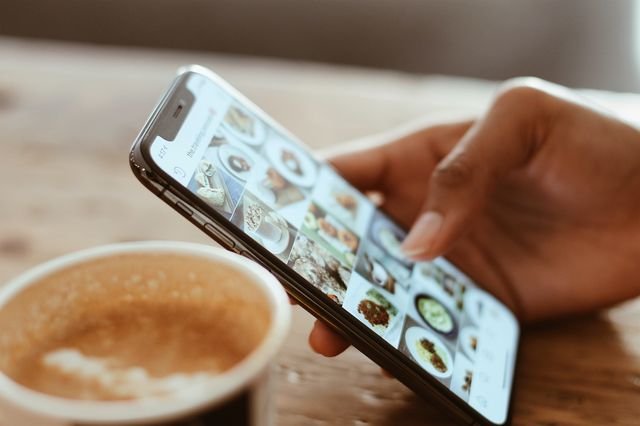Perhaps you have had an experience like this. You are coming homat the end of a busy and challenging week. You are looking forward to a relaxing evening. Perhaps you have decided to enjoy a nice meal. Then you will do some reading or watch a show you have in your streaming queue. As you think about the evening, you feel a sense of anticipation or peace.
While eating your meal, you casually pick up your phone and start scrolling through a social media website. You look for a few seconds; you scroll some more. Before you know it, 60 or 90 minutes have past. And now you might be thinking: Well, I don’t really have time now for that show or that book. What should I do now? If I asked you if you enjoyed your meal, it might be hard to answer because you were paying more attention to the scrolling than the eating. If you checked your mood, the anticipation or the peace might be gone.
An evening that you were looking forward to now feels boring or empty.
This story reflects the ability of social media to impact your mood.
This is not another post about the dangers of social media. Social media can bring people together in ways that wouldn’t have been possible years ago. I was very close to my church youth group in high school, but all of us went our separate ways. A few years ago, we all began to reconnect on Facebook. We planned a delightful weekend reunion, and another one a few years later. People who were important to me were now part of my life again.
But here are some ways that you can get so caught up in social media that it begins to impact your mood and your self-esteem.
You get caught up in comparing yourself to others.
Your thinking mind is designed to problem-solve, evaluate, analyze, and compare. It is doing this all the time. On social media, you read about the lives of others, hundreds or even thousands of others. As you read these idealized descriptions of others, it is easy, without realizing it, to compare your life to theirs. And you always end up falling short in the comparison, so your mood is lowered.
You start feeling bad about yourself.
This is a result of comparing.
Lots of businesses use social media to interact with their target audience and to gauge the interest people have in their products. You can end up using social media to gauge how your friends and contacts feel about you. You can interpret a like as approval. If someone doesn’t like your post, you wonder what that means about you.
But there are no rules of etiquette about what likes and dislikes mean. So, the interpretation you give is highly subjective and often leans toward the negative. The standards of friendship on social media are fairly shallow, so it is unrealistic to believe that you know how someone feels about you based on their response to your post.
You May be Wasting a Lot of Time.
Notice how the scenario above unfolds. “Before you know it”, a lot of time has gone by. And that time has been spent doing something mindless, instead of something meaningful that you were looking forward to doing.
Social media can be an autopilot activity. It would be interesting to have a video recording of yourself on social media. See if you can picture it in your mind. There is no movement except for your finger. The expression on your face probably doesn’t change much at all. Most of the time, you look at a post for a few seconds and move on. If you had to describe the mood of this person you are watching, what words would you use?
It might be important to be more mindful of your presence on social media. Your phone can tell you how much time you are spending on it. Make a decision to spend less time there. Set an alarm and put the phone away when the alarm goes off. Pick the sites that you find meaningful or uplifting and spend more time on them.
You create social isolation.
Lots of research suggest that using social media for a sense of connection can actually lead to you feeling more isolated and lonelier. You see a picture of your friends at an event, and you wonder why you were not invited. Hours of looking at the idealized presentation of others can convince you they are more successful or happier.
Time on social media, no matter how meaningful, cannot replace the emotional nourishment you get from face-to-face contact. That can’t be replaced.
In my work with people with depression, we often spend time on how social media impacts their mood. To learn more, visit my depression treatment specialty page.



